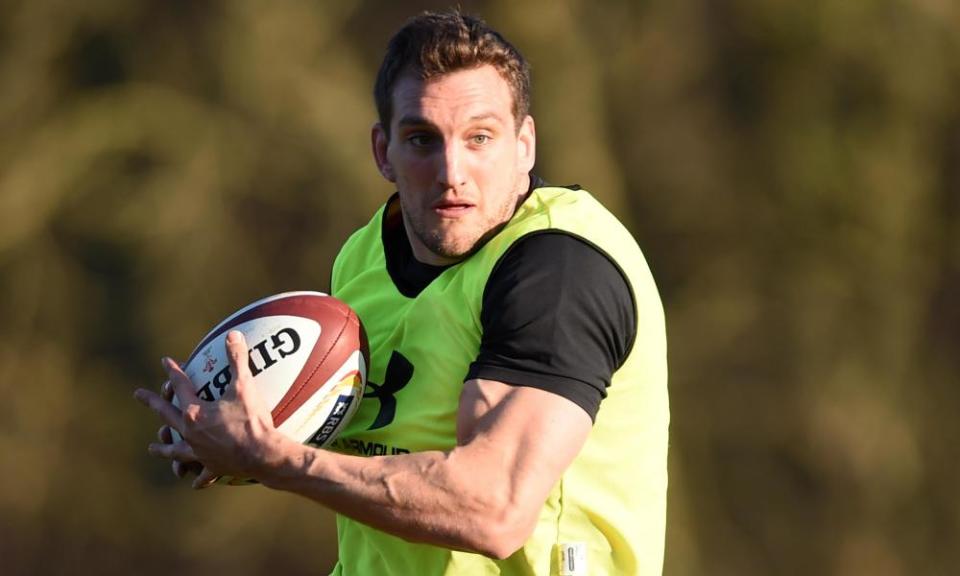Six Nations: Lions, bonus points and other key issues in the 2017 tournament | Gerard Meagher

Lions factor
Four years ago Wales’s opening defeat by Ireland was an eighth in a row. Shortly afterwards Sam Warburton, having temporarily lost his place and the captaincy, had drifted to 30-1 to lead the British & Irish Lions. A few weeks later 14 of the starting XV who thumped England on the final weekend were picked in Warren Gatland’s Lions squad, captained, of course, by Warburton. In short, how you finish the Six Nations is of far greater importance than the form in which you start it.
All the same, it is hard to see Wales having anywhere near the same number of tourists this year. Considering Gatland leant so heavily on his Wales players in Australia four years ago, the looming Lions tour of New Zealand provides this year’s Six Nations with added intrigue. Add in an upwardly mobile Scotland with the fact the term “bolter” for squad selections who seem to come from nowhere is an anachronism and the exhilarating individual battles are manifold. But perhaps what makes the Six Nations so significant is that, half-backs and props aside, there are very few positions where there is one candidate considerably ahead of his rivals.
Tackle laws
Eddie Jones may have said he expects situations to arise where it is “14 against 13” with tongue slightly in cheek but judging by the flurry of cards across the game, he may have a point. What is clear is that the tackle directives, brought in on 3 January, are designed to protect players but it is hard not to see it as World Rugby putting them down on paper and allowing coaches and players alike to figure out how best to adjust to them. Encouraging the tackler to go low may be designed to avoid head injuries but it also brings the danger of head connecting with knee or hip – as was the case with James Haskell and his 35-second comeback last month or Dylan Hartley in Paris last year. And to expect any of the six sides to start displaying markedly improved offloading skills is unrealistic. In the short term, consistency and common sense are going to be required.
Bonus points
When Billy Vunipola was asked about the significance of scoring England’s fourth try against Fiji in the 2015 World Cup curtain-raiser his response was telling: “To be truthfully honest, I didn’t know that bonus points counted in the World Cup.” Eddie Jones was similarly dismissive last week and, while a team out of sight but with only three tries on the board may resist taking their foot off the gas, the beauty of the Six Nations is that the losing side, whether by eight points or 28, rarely throws in the towel. As was the case last year, there will inevitably be the odd borefest (Wales v France), which is the price paid for matches of high drama (England v Wales), and it would be naive to think bonus points would alter the collective mind-set in a competition so entrenched in its ways. On the plus side, this one-year bonus point trial should make the finishing places of third to sixth harder to predict but the fact that the title could be won with a losing bonus point on the final weekend is asking for trouble.
Residency rule
If it is difficult to square Vern Cotter’s claim that he is happy the residency rule may move from a three-year qualification period to five with the Scottish Rugby Union’s pursuit of project players, then it is important to laud France for grasping the nettle, rather than going with the flow, and refusing to pick anyone without a French passport. Wales and England too have come out in support, whereas the Irish Rugby Football Union and Cotter’s bosses at the SRU would prefer to keep it as it is. The fact remains, though, that all teams have taken advantage of the current rule and it must be remembered that nationality is a delicate issue. Ben Te’o’s path to playing for England was more straightforward than Nathan Hughes’s but the centre had hoped to pursue a career with Australia shortly before pledging allegiance to the red rose. Hughes has been candid about his reasons, which is to his credit. But spare a thought for Jack Clifford, who captained England to the Junior World Championship title in 2013 but now, irrespective of his stomach injury, finds himself down the back-row pecking order following Hughes’ eligibility.
World Rugby ranking points
If bonus points are not particularly high on the agenda for the six coaches, ranking points most certainly are. The Six Nations represents each of the side’s final five matches before the World Cup pool allocation draw is made in May. For the 2015 World Cup this stage of the process came even earlier, after the 2012 autumn campaign where Wales’s defeat by Australia dropped Warren Gatland’s side to ninth in the rankings and therefore gave rise to the ‘pool of death’. That in itself is an ugly phrase – the fact is that, as the global game became more competitive, there are more than eight teams with claims on reaching the World Cup quarter-finals – but it does mean the tournament takes on even greater significance for all six nations, with perhaps the exception of England. They would have to have a pretty awful campaign to slip out of the top four but with Ireland in fourth, Wales in fifth, Scotland in seventh, France in eighth and Italy in 13th there is plenty on the line, even if and when the Six Nations title is out of reach.

 Yahoo Sport
Yahoo Sport 




































